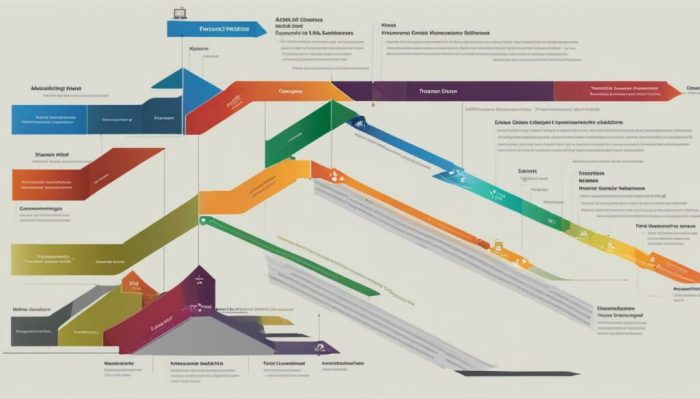How long does it take to complete a master’s degree is a question that resonates with many aspiring graduate students. The journey toward earning a master’s degree can be both rewarding and challenging, with various factors influencing the timeline. From the type of program chosen to personal commitments, understanding how long this educational endeavor takes is crucial for effective planning and goal setting.
This exploration delves into the standard durations across different fields, comparing full-time and part-time options, while also considering the impact of external responsibilities on a student’s progress.
Whether you’re contemplating an on-campus experience or an online pathway, the completion times can vary significantly. Accelerated programs present a unique alternative that speeds up the process, yet they require a greater time commitment. This discussion will illuminate how different variables play into the overall time investment needed to attain a master’s degree.
Duration of Master’s Degree Programs

The duration of a master’s degree program varies significantly across different fields of study, with standard completion times typically ranging from one to three years. Understanding these timelines is essential for prospective students as they plan their educational and career trajectories, ensuring that they can manage their time effectively while balancing work and study commitments.In general, most full-time master’s programs are designed to be completed in approximately two years, though some programs, particularly in the arts and humanities, may allow students to graduate in as little as one year.
For students aiming to enhance their academic performance, understanding what are the most effective study techniques for students is crucial. Techniques such as active recall, spaced repetition, and the Feynman technique not only improve retention but also foster a deeper understanding of the material. Incorporating these strategies can transform study sessions into more productive and engaging experiences.
Part-time programs, on the other hand, can extend the duration to three or even four years, depending on how many courses a student can undertake each semester. The flexibility of part-time studies can be beneficial for those who are working or have other commitments, providing a more manageable pace.
Comparison of Full-time and Part-time Master’s Programs
The choice between full-time and part-time master’s study can significantly influence the duration of the program. Here are some key comparisons between the two:
- Full-time Programs: Typically designed for students who can dedicate most of their time to studies. These programs often include a structured schedule, with classes during the day and regular assignments.
- Part-time Programs: More flexible, allowing students to take fewer courses per semester. This format often accommodates working professionals who wish to enhance their qualifications without quitting their jobs.
- Accelerated Programs: Some institutions offer accelerated master’s programs that can be completed in as little as one year, focusing on intensive coursework and often incorporating practical experience.
- Online Programs: Online master’s degrees may provide additional flexibility, with some programs designed to be completed at a student’s own pace, which can extend or shorten the duration based on individual progress.
Several factors can affect the length of a master’s degree program. These include:
- Field of Study: Different disciplines have varying requirements; for example, a master’s in engineering may require more coursework than a master’s in literature.
- Institutional Policies: Different universities have their own structures and timelines, which can influence the duration of programs.
- Student Commitment: Personal factors, such as time management skills and external commitments, can impact how quickly a student completes their degree.
- Thesis or Capstone Projects: Some programs require a thesis or capstone project, which can extend the time needed to graduate, especially if the research takes longer than anticipated.
Understanding the duration of master’s programs helps students make informed decisions about their education and career paths.
Types of Master’s Degree Programs: How Long Does It Take To Complete A Master’s Degree
Master’s degree programs come in various formats, each designed to cater to different student needs and lifestyles. Understanding the distinctions between online and on-campus programs is crucial, especially when considering the time commitment required to complete each type. The choice between these formats can significantly impact the duration and overall experience of earning a master’s degree.
Online vs. On-Campus Master’s Degree Programs
Online and on-campus master’s degree programs differ primarily in their structure and flexibility, which can influence the time taken to complete them. Online programs often allow for a self-paced learning experience, enabling students to balance studies with professional or personal commitments, potentially shortening or extending the completion time based on their dedication and availability. Conversely, on-campus programs typically follow a set schedule with fixed timelines, which can result in a more structured environment but may also lengthen the time to graduation for students who are unable to attend full-time.For instance, an online master’s program may offer accelerated options that allow students to complete their degree in as little as 12 to 18 months, depending on the field of study and the number of courses taken per semester.
Effective studying is crucial for academic success, and various techniques can enhance retention and understanding. Among these, techniques like active recall and spaced repetition stand out. For a deeper dive into the most impactful methods, check out this resource on What are the most effective study techniques for students. Implementing these strategies can transform your study habits.
In contrast, traditional on-campus programs may require two years for completion, particularly if students attend part-time or have other commitments.
Accelerated Master’s Programs and Their Timelines
Accelerated master’s programs are designed for students who wish to complete their degrees in a shorter timeframe without compromising the quality of education. These programs often feature an intensive curriculum and may include additional coursework or summer sessions. Examples of accelerated master’s programs include:
Master of Business Administration (MBA)
Some programs can be completed in as little as 12 months.
Master of Science in Nursing (MSN)
Certain accelerated MSN programs can be completed in 16 to 20 months.
Master of Public Health (MPH)
Some institutions offer programs that allow completion within 12 to 18 months.These accelerated tracks often require a rigorous commitment but reward participants with a quicker path to career advancement.
Comparison of Various Master’s Programs and Their Average Durations
Understanding the average duration of different master’s programs can help students make informed decisions about their educational paths. Below is a comparative table that Artikels various master’s degree programs and their typical completion times:
| Program Type | Average Duration |
|---|---|
| Master of Arts (MA) | 1.5 to 2 years |
| Master of Science (MS) | 1.5 to 2 years |
| Master of Business Administration (MBA) | 1 to 2 years |
| Master of Education (M.Ed) | 1 to 2 years |
| Master of Public Health (MPH) | 1 to 2 years |
| Master of Social Work (MSW) | 2 years |
This table provides a clear overview of the expected durations for various master’s programs, allowing potential students to better plan for their educational goals.
Student Commitments and Their Impact

Balancing a master’s degree with personal and professional commitments can significantly influence the time required to complete the program. Various factors, such as work obligations, family responsibilities, and internships, play critical roles in shaping a student’s academic journey. Understanding these dynamics can help prospective students better prepare for the challenges that lie ahead.
Impact of Work Commitments, How long does it take to complete a master’s degree
Many students pursuing a master’s degree juggle their studies with full-time or part-time employment. This dual responsibility can lead to extended degree completion times due to several factors:
Limited Availability
Working students often have restricted time for coursework, study sessions, and group projects, making it challenging to keep up with the academic workload.
Stress and Fatigue
Balancing job responsibilities and academic demands can lead to burnout, which may affect academic performance and prolong the time needed to complete the degree.
Flexible Learning Options
Some institutions offer online or part-time programs tailored for working professionals. These options can help mitigate the impact of work commitments by providing the flexibility needed to manage both work and study effectively.
“Students juggling work and study often find that flexibility in course delivery can dramatically improve their chances of timely completion.”
Impact of Family Responsibilities
Family obligations can also influence a student’s timeline for completing a master’s degree. Responsibilities such as childcare, eldercare, or household management can consume significant time and energy:
Time Constraints
Family obligations may limit the hours available for attending classes, completing assignments, and studying, resulting in a slower pace of academic progress.
Financial Considerations
Students may need to work more hours or take on additional jobs to support their families, further extending the time needed to finish their degree.
Support Systems
Having a robust support system, including family members who can assist with domestic responsibilities, can alleviate some of the pressures and help students stay on track with their studies.
“Support from family members can be pivotal in helping students manage their academic and family responsibilities effectively.”
Role of Internships or Practicums
Internships and practicums are valuable components of many graduate programs, offering hands-on experience and networking opportunities. However, they can also affect the duration of a degree program:
Credit Accumulation
Some programs integrate internships for academic credit, which can either accelerate the completion of a degree by providing practical experience or extend the timeline if the internship requires additional coursework.
Time Investment
Internships can demand significant time commitments, often requiring students to balance their academic responsibilities while gaining practical experience in the field. This can lead to a more extended period of study depending on the structure and requirements of the internship.
Career Advancement
Successful internships can lead to job offers post-graduation, providing a strong incentive for students to complete their degrees. However, the time spent in internships may delay graduation.
“Internships not only enhance employability but can also influence the duration of a master’s program based on their time demands.”
Strategies for Timely Completion

Pursuing a master’s degree can often feel overwhelming, particularly when balancing coursework, research, and personal commitments. However, implementing effective time management strategies can significantly impact your ability to complete the program within the desired timeframe. Successful completion often hinges on meticulous course planning and maintaining motivation throughout the journey.
Time Management Techniques
Effective time management is crucial for students striving to complete their master’s degree on time. Establishing a structured schedule enables students to allocate sufficient time for studies, assignments, and personal life without compromising their academic performance. Students should prioritize their tasks by identifying urgent deadlines and importance, allowing for a more organized approach to their studies.
Importance of Course Planning
Course planning and selection are fundamental elements in achieving timely completion. Choosing the right courses not only aligns with academic goals but also helps avoid bottlenecks that can lead to delays in graduation. Students should consider factors such as prerequisites, course availability, and the workload associated with each subject when planning their semester schedules. To aid in effective course planning, consider the following tips:
- Review program requirements and Artikel your path to completion.
- Consult academic advisors to align your schedule with program criteria.
- Select courses that interest you to enhance engagement and motivation.
- Balance challenging courses with those that require less intensive effort.
- Stay informed about any changes in course offerings or program requirements.
Maintaining Motivation
Staying motivated during the master’s journey can be challenging, especially when faced with the pressures of deadlines and complex material. To sustain enthusiasm, students should employ various strategies that foster both academic and personal growth.Consider the following tips for maintaining motivation throughout the duration of a master’s program:
- Set realistic, achievable goals for each semester and celebrate milestones.
- Establish a study group to foster collaboration and support among peers.
- Incorporate regular breaks and self-care routines to avoid burnout.
- Engage in extracurricular activities related to your field to enhance learning.
- Regularly reflect on your academic journey and remind yourself of your long-term goals.
By strategically managing time, planning courses effectively, and maintaining motivation, students can navigate their master’s programs more efficiently, increasing the likelihood of timely completion.